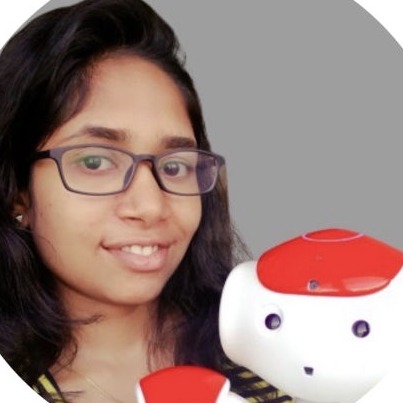E. Roosevelt (1884 - 1965)
Our mission is to invent and develop design methodologies for modern embedded or cyber-physical systems with respect to safety, security, real-time and cloud-based computing. The aspect of usability and human machine interface technologies are one of the main topics of our research. Hot topic aspects like digital twins, smart cities and autonomous driving are the core is cases in our research.

Topics:
- Embedded Systems
- Real-Time Systems
- Data Analysis

Topics:
- Distributed Systems
- Augmented Systems
- Energy Efficiency

Topics:
- SW Specifications
- Model-based Design
- Safety-Critical Systems

Topics:
- Digital Twin
- Deep Learning
- Automotive Systems

Topics:
- Machine Learning
- Software Engineering
- Artificial Intelligence

Curriculum Vitae
Research Topics
Society Memberships
Speaker/Chair Activities

Topics:
- Machine Learning
- Autonomous Systems
- Cognitive Robotics

Topics:
- Machine Learning
- Big Data
- Computer Vision

Dissertation Topic: "Mechatronic
Processing Objects - Eine verarbeitung-sorientierte Modell-repräsentation
als Basis einer offenen Entwurfs-umgebung für mechatronische
Systeme"
Graduation in 2012

Dissertation Topic: "State-Based Real-Time Analysis of
Synchronous Data-flow (SDF)
Applications on MPSoCs with Shared
Communication Resources"
Graduation in 2016

Dissertation Topic: "A Linear Scaling Change Impact Analysis
Based on a Formal Safety Model for
Automotive Embedded Systems"
Graduation in 2016

Dissertation Topic: "Hardware image processing for high speed, high resolution array detectors for scientific images"
Graduation in 2017

Dissertation Topic: "State-based timing analysis for distributed systems"
Graduation in 2017

Dissertation Topic: "Multi-formalism in different levels of abstraction for requirements engineering and architectural design of real-time embedded systems"
Graduation in 2019

ABB AG
Dissertation Topic:
"An integrated environment for modeling and deploying Digital Twins"
Graduation 2024

Download the list of published books, edited books, journals, workshop and conference paper here.
achim.rettberg_at_iess.org
achim.rettberg_at_hshl.de
HTML Maker